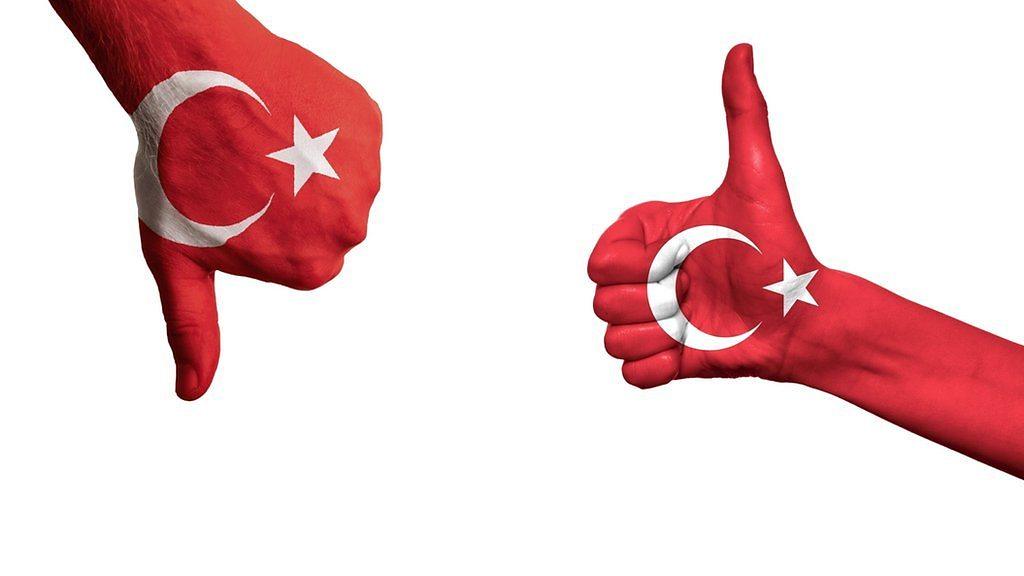Turkey referendum: Critics abroad fear Erdogan's reach
- Published
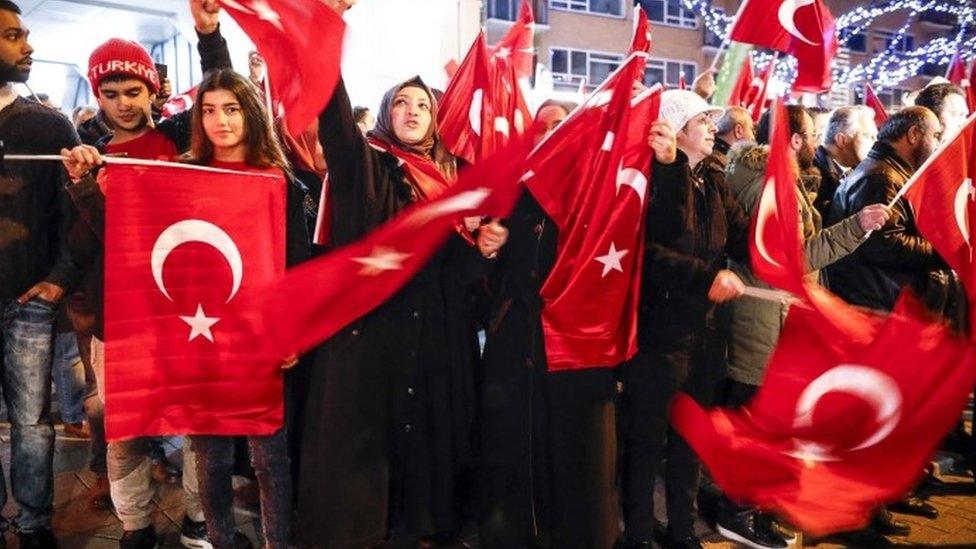
Protests gripped Rotterdam in March when a Dutch ban on visits by Turkish ministers enraged Ankara
How do Turks in the Netherlands feel about Turkey's controversial referendum on 16 April? Turks living abroad are already voting - deciding whether to give President Recep Tayyip Erdogan sweeping new powers.
The BBC's Anna Holligan looks at the tensions gripping the Dutch-Turkish community.
A convivial mood emanates from the crowds flashing ID cards and smiles, as they stream through metal barriers outside a temporary polling station, set up inside a convention centre in a suburb of The Hague.
Families link arms, children catch melting ice-cream with the tips of their tongues. Some women wear headscarves, others let their bleached hair flow, men hug and share jokes in their mother tongue.
Plain-clothes police officers keep a cautious watch across the street.
About 250,000 Dutch-Turks are eligible to vote. Along with the millions in Germany, a politically-engaged diaspora could swing what is expected to be a tight result.
Two young men made the one-hour round trip from Rotterdam to mark their ballot because "it's the motherland'. The 25-year-old grins - one day he will go and live there forever. He voted "yes" because "Erdogan is a good man who can make the country better".
'If you're critical, you're disloyal'
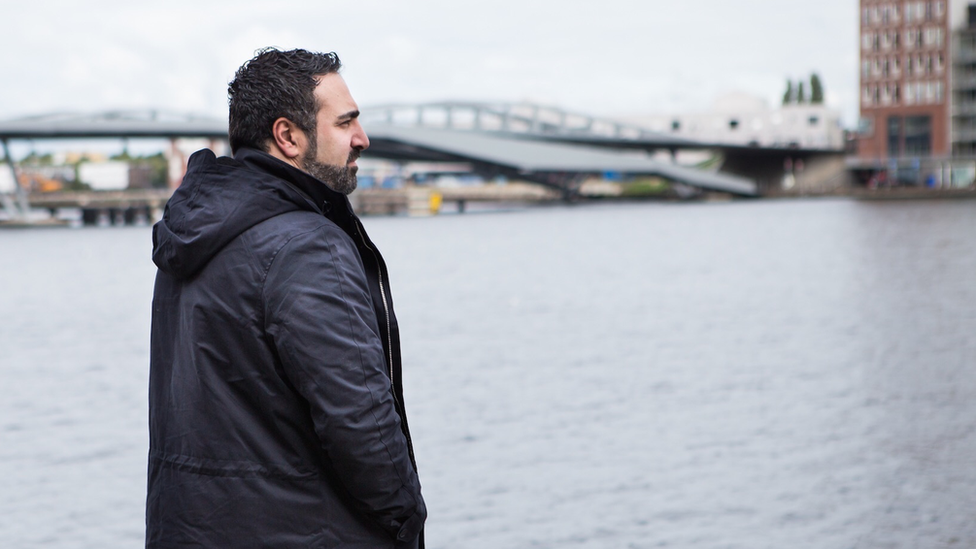
Erdogan critic Sinan Can: "Every day it's getting worse. I'm afraid someone will get killed"
But those who hold different views take a risk by expressing them.
Sinan Can's documentary work has made him unpopular with the pro-Erdogan lobby based in the Netherlands.
"When I went to vote they called me a traitor, if you're critical of Erdogan you're considered disloyal to Turkey. Fear is the biggest problem among Turks here.
"They say if I go to Turkey they'll get me and lock me up. Gulenists have a lot of death threats, every day it's getting worse. I'm afraid someone will get killed," he said.
He has not been home for three years.
And last week's detention of 10 Dutch-Turkish holidaymakers was evidence that this isn't paranoia.
Mr Erdogan's AK Party says the botched military coup last July was instigated by US-based cleric Fethullah Gulen, a former ally turned enemy.
Long arm of Erdogan
Turks first moved to the Netherlands as "guest workers" during the post-war economic boom in the 1960s and 1970s.
Now they are third- and fourth-generation.
Many of those who were born and educated in this secular society feel a greater affinity with the Islamic country of their ancestors. And this romanticised nostalgia is buoyed by propaganda pumped out by satellite TV and other state-funded channels.
The long arm of Mr Erdogan is felt through the Turkish government's influence on the diaspora.
Hakan Buyuk works for the Dutch-Turkish weekly newspaper Zaman Vandaag - he has been told by police to keep a low profile after reporting threats to his life.
"The Union of European Turkish Democrats functions as the AKP in Europe. Diyanet - the directorate of religious affairs - is funded by the Turkish government and runs about 150 mosques in the Netherlands," he says.
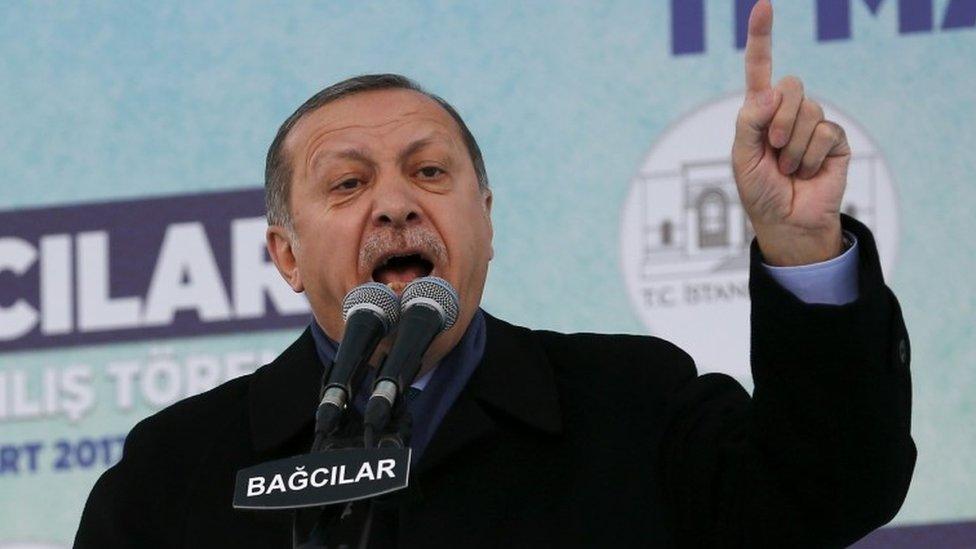
Turks are deciding whether to give President Erdogan sweeping new powers
Last month Dutch police fired water cannons to disperse a pro-Erdogan crowd outside the Turkish consulate in Rotterdam, protesting after two Turkish ministers were barred from addressing a rally.
Mr Erdogan fired back with insults, calling the Dutch "Nazi remnants" and accusing them of presiding over the genocidal slaughter of Bosnian Muslims in Srebrenica in 1995.
"It just makes them more passionate about him," says Thijl Sunier, professor of cultural anthropology at the Free University of Amsterdam. He tells me Dutch-Turks see Mr Erdogan through rose-tinted glasses.
"They don't experience the negatives caused by his policies, all the economic crumbling... they're looking at him from a distance, they're impressed by the macho way he does politics."
Political culture clash
"We are very concerned," says Han Ten Broeke, the liberal VVD party's foreign affairs spokesman.
"We are a free and open society. This monitoring makes people silent. We get diversions, intimidation and violence. We simply cannot tolerate that in this country.
"There's been a surge in police reports of Turks who feel threatened by other Turks - these are Dutch people and it's happening in the midst of our society."
The Dutch government believes these ties to a country led by someone seen as the authoritarian antithesis of Dutch liberal tolerance is one of the greatest impediments to Turkish integration.
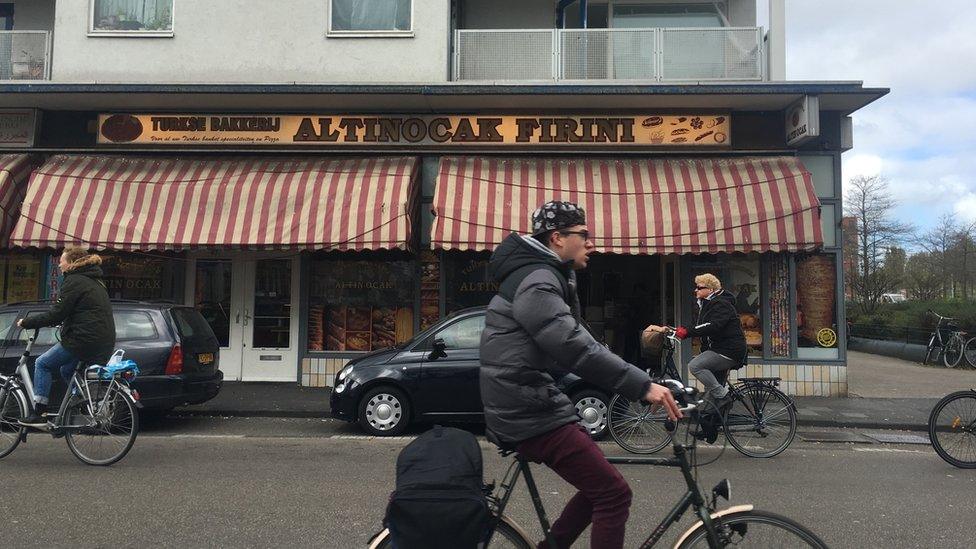
Schilderswijk in The Hague: Many Dutch-born Turks show strong loyalty to Turkey
Some working-class neighbourhoods are divided along ethnic lines - places like Feijenoord, a Rotterdam district, and Schilderswijk in The Hague.
There it is "proud Turks" versus nationalist white Dutchmen, like Erwin, who tells me the Turks need to "get more Dutch - we're not trying to make them walk in clogs, but they have to stop trying to grab onto the past".
Prof Sunier says this push is more influential than the pull Dutch-Turks feel from Ankara.
"If we continue to see people with a Turkish background as foreigners, even when they are born and raised here, it creates this feeling that even when they have a Dutch passport, speak Dutch, have a Dutch education, still they cannot reach higher levels - this is more important than all the efforts of Erdogan."
The AKP - enjoying very solid support in Turkey - is even more popular among foreign-born Turks. In Turkey's November 2015 election 70% of Dutch-Turks voted Erdogan.
Such powerful political influence over a large ethnic minority poses challenges not only for the Netherlands but for Europe in general.
- Published30 March 2017
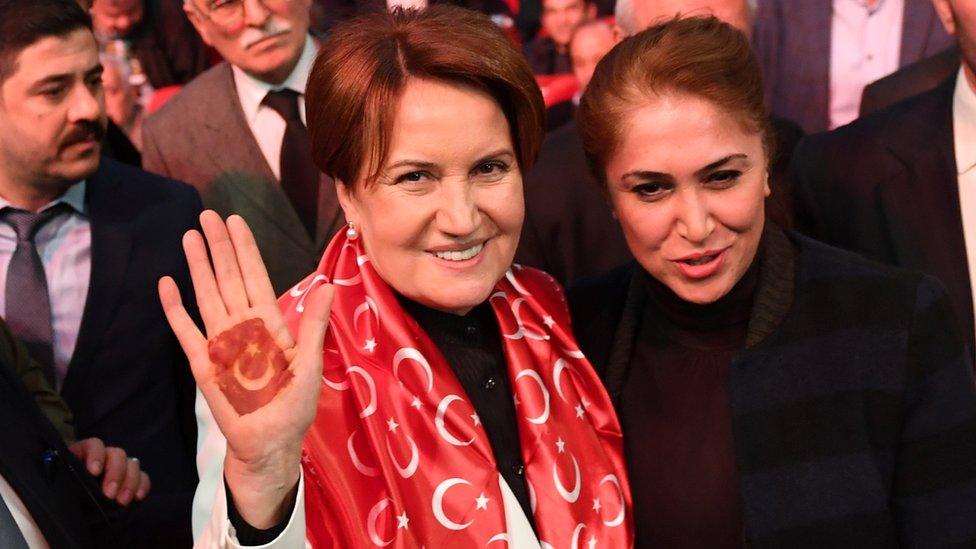
- Published27 March 2017
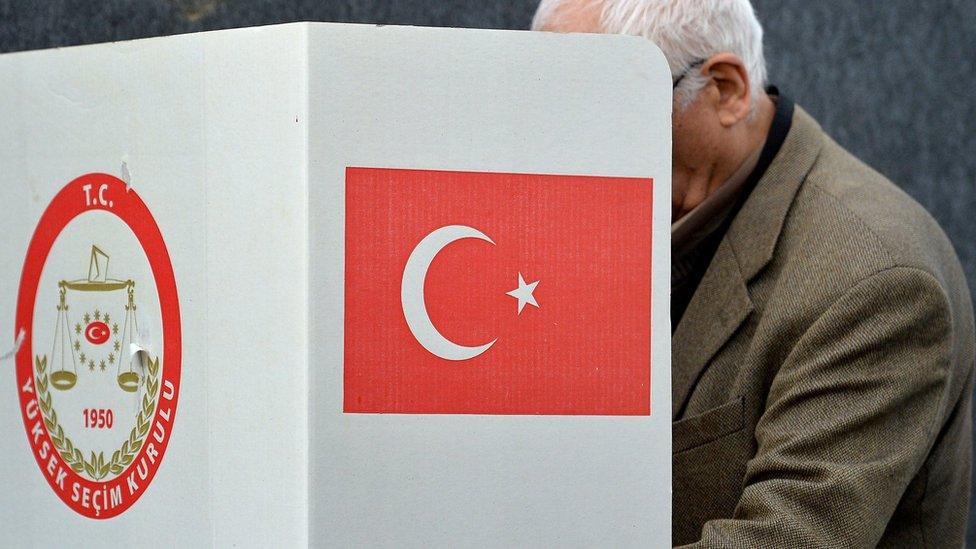
- Published16 April 2017
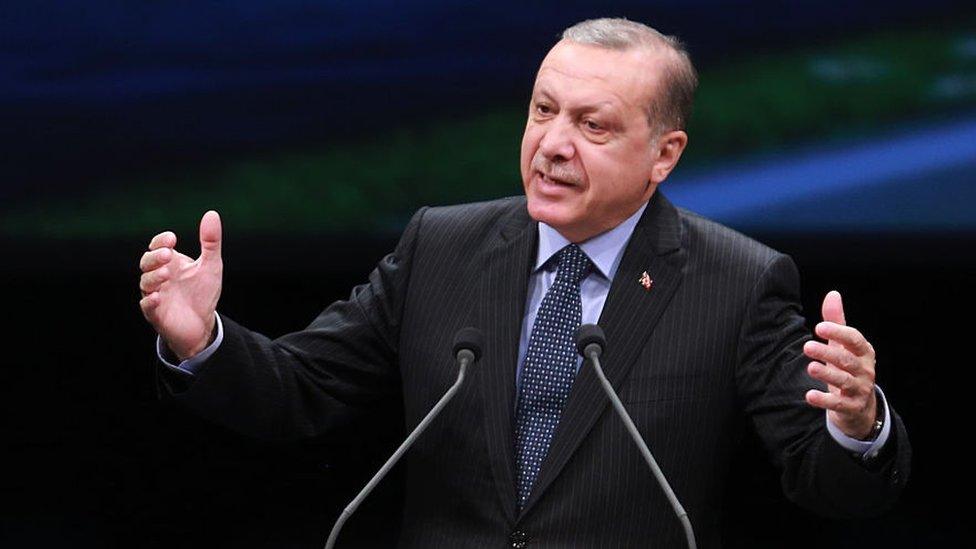
- Published8 April 2017
